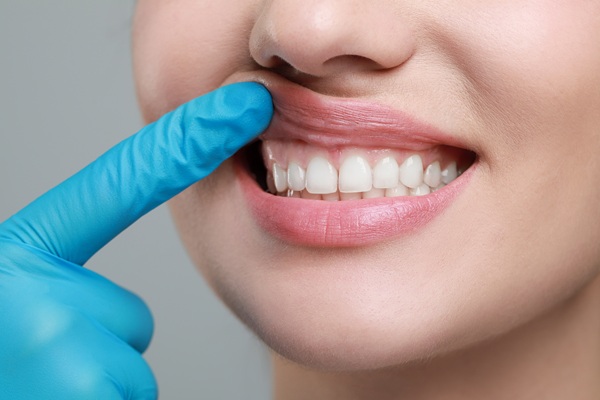Can Gum Disease Be Treated at Home?

Gum disease is not a condition you should ever ignore. At the first signs of trouble, you should talk to your dentist about how to treat these issues and restore your gums to good health. While the dentist can recommend in-office treatment, there are also things you can do on your own. Along with good prevention methods, make sure you follow some effective techniques for stopping this disease. If you take these matters seriously, you can improve the way you feel and the way your gums and teeth look.
Preventing gum disease
This disease is common among people of all ages. In its beginning stages, known as gingivitis, gums swell and turn red. They may even bleed while the person is eating or brushing. Neglecting these signs can lead to a more serious stage called periodontitis. Teeth can start to pull away from the gums, the gums can recede, and bone loss can occur.
Prevention is possible with good oral hygiene. People should brush at least twice a day with fluoride-based toothpaste. This eliminates bacteria from the teeth and gumline. Flossing will also dislodge food particles and other debris, which would otherwise invite bacteria and the buildup of plaque and tartar.
Seeing a dentist
The general dentist can diagnose a person with gum disease and start a treatment plan. In between regular checkups, patients should also look for signs of this condition. If any of the major symptoms are present, the person should schedule an appointment with the dentist. The dentist can determine the severity of the disease and whether in-office treatments are necessary. Regular follow-up on gum health may occur for patients with significant gum issues.
Brushing
If the gum disease is mild, effective brushing could stop it and reverse its effects. Along with twice-a-day brushing, the individual should use a soft brush and get a new one every three months. The person should spend about two minutes brushing. It is important to brush both sides of every tooth and focus on brushing gums and the gumline. Brushing after meals is particularly vital.
Flossing
Flossing is an activity that many people ignore. Flossing between every tooth once a day will reduce the risk of tooth decay and gum disease. It prevents the formation of plaque and tartar. Flossing should not be vigorous, but the patient should spend enough time on each tooth to do a thorough job. Flossing too much can pose more problems than it can be beneficial.
Use a mouthwash
Rinsing with a mouthwash once or twice a day can help. A rinse can kill the germs that contribute to gum disease. Make sure the product has antiseptics so that it can clean the mouth more effectively. The dentist can also recommend a good mouthwash.
Do your part to stop this disease
You should be the first line of defense against gum disease. Through regular oral hygiene, you can reduce the risk of more serious problems of gum disease, such as tooth loss and bone loss. Call our Lithia Springs office to learn more or to schedule your next appointment.
Request an appointment here: https://www.claudedaniel.net or call Claude P. Daniel, DDS at (770) 983-6797 for an appointment in our Lithia Springs office.
Check out what others are saying about our dental services on Yelp: Gum Disease in Lithia Springs, GA.
Related Posts
A full mouth reconstruction is a set of dental procedures designed to address multiple oral health and cosmetic concerns. One major component of many full mouth reconstructions is teeth replacement. This review offers insights into why and when dentists recommend dentures as a part of full mouth reconstruction. Dentures offer many advantages that other teeth replacement…
Even if we do not like it, there is a reason our general dentist recommends routine visits at least every six months. In fact, there are several important reasons why we should get into the habit of going to the dentist for regular visits as often as is necessary or as is told. The visits…
Finding the right dentist for your oral health needs can be difficult. Many questions may come to mind, such as whether a general dentist or a family dentist is the right choice. In this blog, we will discuss the differences between general and family dentists, helping to give you a better understanding of when to…
Most general dentists agree that having a broken tooth is more serious than it gets credit for. It is easy to overlook damage, especially if no pain is associated with it or the damage is not visible. However, leaving a damaged tooth untreated can result in serious consequences. This article will discuss four ways our…
